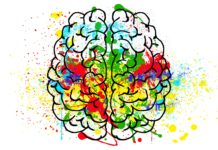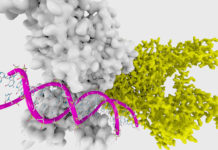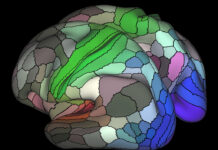The Trouble with Twin Studies
As most readers are aware, it is widely believed that both within and without of psychiatry genetic factors play an important role in causing major psychiatric disorders such as schizophrenia, bipolar disorder, major depression, ADHD, autism, anxiety, and even post-traumatic stress disorder (PTSD). Twin studies provide the main pillar of support for this belief which is often, though mistakenly, presented as a scientific fact.
Mental Health Professionals Critique the Biomedical Model of Psychological Problems
While a great deal of the excitement about advances in psychological treatments comes from the potential for research in neuroscience to unlock the secrets of the brain, many mental health experts would like to temper this enthusiasm. A special issue of the Behavior Therapist released this month calls into question the predominant conception of mental illnesses as brain disorders.
Schizophrenia and Genetics: A Closer Look at the Evidence
“The substantial hereditary component in schizophrenia,” a pair of researchers wrote in 1993, “is surely one of the two or three best-established facts in psychiatry.” But is it really? For mainstream psychiatry and psychiatric genetics, schizophrenia is “a severe mental disorder with a lifetime risk of about 1%, characterized by hallucinations, delusions and cognitive deficits, with heritability estimated at up to 80%,” or a “highly heritable neuropsychiatric disorder of complex genetic etiology.” Many commentators have challenged these claims, and some have challenged the concept of schizophrenia itself.
Brain Disease or Existential Crisis?
As the schizophrenia/psychosis recovery research continues to emerge, we discover increasing evidence that psychosis is not caused by a disease of the brain, but...
Researchers Question Link Between Genetics and Depression
A new study, published in the journal Molecular Psychiatry, found no link between genetics and the occurrence of depressive symptoms.
Philosophers Challenge Psychiatry and its Search for Mechanisms of Disorder
Attempting to locate the mechanisms of psychiatric disorder is a step in the wrong direction and fails to challenge potentially unjust social practices.
It is Time to Abandon the Candidate-Gene Approach to Depression
The candidate-gene approach to depression goes unsupported and is likely based on bad science, new research finds.
The Genetics of Schizophrenia: A Left Brain Theory about a Right Brain Deficit in...
In recent months, two teams of researchers in the UK and the US published complementary findings about the epigenetic origins of schizophrenia that have scientific communities who indulge in ‘genetic conspiracy theories’ abuzz. While these results are intriguing, and no doubt involve pathbreaking research methodologies, this line of thought represents a decontextualized understanding both of the symptoms that are typically associated with schizophrenia, and their causes.
Scientists Fight Against the Myth of the Normal or Optimal Brain
A new study out of Yale University uses evolutionary biology to debunk the idea that there is a “normal” or “optimal” brain.
A Blood Test for Schizophrenia with 83% Accuracy?
An NBC online News article dated October 15, 2010, carried the noteworthy title New blood test may help detect schizophrenia. The article was written by Natasha Allen, a freelance medical journalist. The gist of the article is that there is a new blood test called VeriPsych which "researchers say" is 83% accurate in discriminating people who are "schizophrenic" from people who are not.
Twin Studies are Still in Trouble: A Response to Turkheimer
Human behavioral genetics and its allied field of psychiatric genetics are in trouble, as unfulfilled gene discovery expectations during the “euphoria of the 1980s” have continued to the present day, leading to researchers’ “nonreplication curse” dysphoria of the 2010s. In my recent book The Trouble with Twin Studies: A Reassessment of Twin Research in the Social and Behavioral Sciences, I presented a detailed argument that genetic interpretations of the common “classical twin method” finding that reared-together MZ twin pairs resemble each other more (correlate higher) for behavioral characteristics than do reared-together same-sex DZ twin pairs are invalid because, among other reasons, the twin method’s crucial MZ-DZ “equal environment assumption” (EEA) is false.
Large Rigorous Study Debunks Popular Gene-Environment Theory of Depression
A large and rigorous meta-analysis fails to find support for the gene-environment interaction theory of depression.
Large Study Finds Epigenetic Changes Associated with Trauma Explained by Smoking
A new study suggests that epigenetic changes that have been associated with trauma may actually be due to environmental toxins.
“Bewitching Science” Revisited: Tales of Reunited Twins and the Genetics of Behavior
In this article I will attempt to debunk one of the great “scientific” smoke and mirrors shows of the past half century—the claim that stories of reunited separated MZ (monozygotic, identical) twin pairs indicate that heredity plays a major role in causing human behavioral differences. These stories, which are often used to sell the false ideology of genetic determinism, have entered the public imagination in a way that academic research results never could. Here I will show that these stories provide no evidence whatsoever that (as yet undiscovered) “genes for behavior” influence human behavioral development.
A Critique of Genetic Research on Schizophrenia – Expensive Castles in the Air
In the light of the much trumpeted claims that recent research has identified genes for schizophrenia, it is important to review the track record of this type of endeavor. Despite thousands of studies costing millions of dollars, and endless predictions that the genetics of schizophrenia would shortly be revealed, the field has so far failed to identify any genes that substantially increase the risk of developing schizophrenia.
Brain Imaging Reveals Psychiatric Disorders are Not Neurological Disorders
Some researchers have been arguing to reclassify all psychiatric disorders as diseases of the brain and nervous system, similar to epilepsy or Parkinson's disease. Neuroimaging research, however, reveals that psychiatric disorders appear to be distinct from neurological disorders, according to a new study published in this month’s issue of the British Journal of Psychiatry.
Study Links Antidepressants and Decreased Coping Behaviors Across Generations
Biologists found that exposure to antidepressants suppresses important survival behaviors in zebrafish, an effect that persisted across three generations and was found to be more severe for males.
Quotations From the Genetics “Graveyard”: Nearly Half a Century of False Positive Gene Discovery...
In a 1992 essay, British psychiatric genetic researcher Michael Owen wondered whether schizophrenia molecular genetic research would become the “graveyard of molecular geneticists.”1 Owen predicted that if major schizophrenia genes existed, they would be found within five years of that date. He was optimistic, believing that “talk of graveyards is premature.”2 Owen now believes that genes for schizophrenia and other disorders have been found, and was subsequently knighted for his work. Despite massively improved technology, however, decades of molecular genetic gene finding attempts have failed to provide consistently replicated evidence of specific genes that play a role in causing the major psychiatric disorders.
The Failed Quest for Biomarkers in Psychiatry
A recent commentary by Ganesan Venkatasubramanian and Matcheri Keshavan notes that efforts to identify biomarkers in people diagnosed with psychiatric disorders have been overwhelmingly...
New Study Raises Doubts About fMRI Neuroimaging Research
More than forty thousand papers have been published using functional magnetic resonance imaging (fMRI) technology to explore the brain. A new analysis of the common...
Twin Studies and the “Nonreplication Curse” in Psychiatric Molecular Genetic Research
Psychiatric molecular genetic research has failed to discover genes that underlie the major psychiatric disorders, the existence of which twin and adoption studies are assumed to have established. "Genome-wide complex trait analysis" (GCTA) was developed a few years ago as a means of solving what researchers call the "missing heritability" problem. One researcher believed that the new GCTA method would “drive a stake through the heart of” criticism of behavioral genetic theories and methods, and would finally put criticism of twin studies “to rest.” The opposite scenario appears to be playing out, however, as leading behavioral genetic and psychiatric genetic researchers struggle to prevent some recent negative GCTA findings and the obvious false assumptions underlying twin research from driving a stake through the heart of twin studies themselves.
Why Precision Psychiatry is Not a Paradigm Shift
A letter just published in JAMA Psychiatry suggests that “precision psychiatry” is not the paradigm shift it’s purported to be by the psychiatric establishment.
Comments on Jeffrey Lieberman and Ogi Ogas’ Wall Street Journal Article on the Genetics...
The March 3rd, 2016 edition of the Wall Street Journal featured an article by past President of the American Psychiatric Association (APA) Jeffrey Lieberman and his colleague, computational neuroscientist Ogi Ogas. The article was entitled “Genetics and Mental Illness—Let’s Not Get Carried Away.” In their piece, the authors started by expressing the belief that a recent study identified a gene that causes schizophrenia, and then discussed whether it is desirable or possible to remove allegedly pathological genes in the interest of creating a future “mentally perfect society.” The authors of the article, like many previous textbook authors, seem unfamiliar with the questionable “evidence” put forward by psychiatry as proof that its disorders are “highly heritable” In fact, DSM-5 Task Force Chair David Kupfer admitted that “we’re still waiting” for the discovery of “biological and genetic markers” for psychiatric disorders.
Large German Anti-Stigma Campaign Shows Little Effect on Attitudes
“Overall, this study showed that the information and awareness campaign had almost no significant effects on the general public's attitudes toward people affected by either schizophrenia or depression,” the researchers, led by German medical sociologist Anna Makowski, wrote. “One could assume that deeply rooted convictions cannot be modified by rather time-limited and general activities targeted at the public.”
Direct-to-Consumer Genetic Testing is Often Wrong
Direct-to-consumer (DTC) genetic testing has an “alarmingly high” 40% false-positive rate.




















